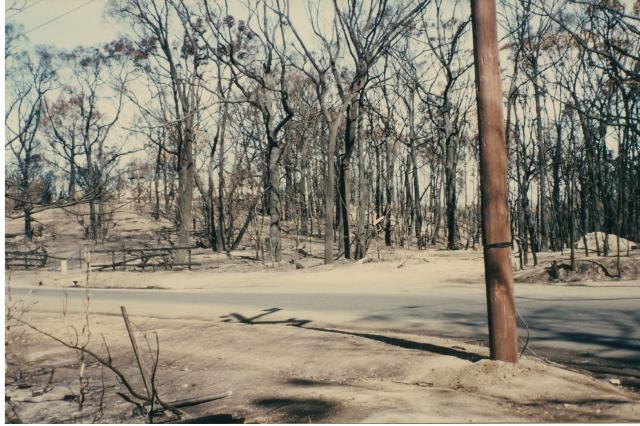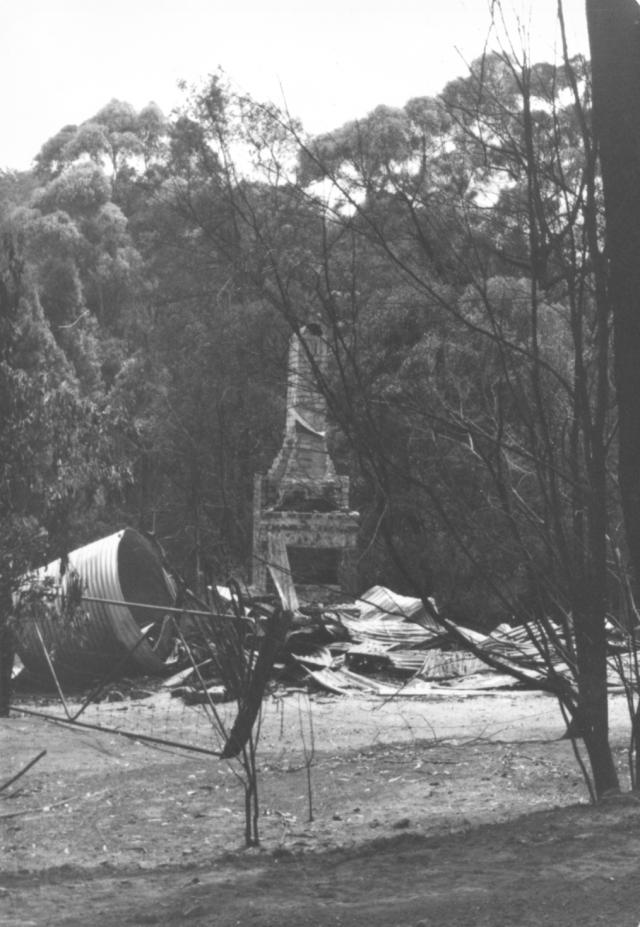
By Callum Ludwig
For members of the Yarra Junction Fire Brigade, there was a sense of unease on Wednesday 16 February 1983.
A number of crew members including Captain Frank Colverson, Crew Leader Ted Shalders and Driver Alan Caddy had arranged work locally so they could be on hand for the breakout of fire.
Around mid-afternoon, a fire had started near Belgrave, with tankers dispatched from Warburton, Don Valley and Woori Yallock but it wasn’t until about 7.30pm that Yarra Junction crews were told to report to the Berwick Showgrounds.
Mr Caddy said they were there to assist other tankers and fill them up with water when the wind changed and the fire came straight to them.
“None of us had ever seen a fire like that before but you just can’t comprehend the magnitude of it all until you are actually in there,” he said.
“As far as I was concerned, with the equipment we had and the position we were in, we were quite safe but having said that, I’ve never seen fire go as fast down a hill as it goes up as I did on that day.”
In Mr Colverson’s book ‘Being Frank: Recollections of Life in Yarra Junction’, he said the rest of the Yarra Junction crew on that day was formed of experienced radio operator Barry Brooker, the ‘level-headed’ now Mayor of Yarra Ranges Council Jim Child and two less-experienced younger members Grant de Nijs and Steve Davenport.
Mr Colverson said in the book that he was confident with the crew, a good mix of experience and youth.
“They should be okay but I was concerned. It was the first time I had sent a crew to a major fire and the reports coming over commercial radio and the television were not good,” it reads.
Mr Colverson stayed behind while his crew went to the Dandenongs, keeping an eye on the situation developing locally. For the deployed crew, conditions had worsened.
Mr Caddy said the crew deployed towards Berwick and saw car accidents with people still inside on their journey there and back.
“We had one where a four-wheel-drive had run into the back of a stopped truck, but the smoke must have been that bad and the driver didn’t see the truck, and those people were trapped inside. I don’t know the result of it, but they were certainly injured,” he said.
“The conditions were that bad we had put the sprays on we were lucky enough to have on the back of the truck, so the boys could sit on the back of the truck with the water covering them. “The glass of the truck was so hot you couldn’t even hold your hand on it.”
The importance of decision-making in crisis scenarios was more than apparent in the outcome for the Yarra Junction crew, and just how hard it is to think rationally could not be overstated.
Mr Shalders had seen a house on an apple orchard with a large grassy paddock under threat, with the fire advancing downhill towards them and livestock and animals fleeing. He saw the danger and refused to go into the paddock, instead remaining close to a house with a swimming pool full of water. Soon after, a strong southwest wind change came through and that decision likely saved the crew’s lives.
Contrastingly, Mr Caddy describes a young woman who took off down the road in shorts, a singlet and thongs.
“Jim Child and myself went after her and she was distraught saying she had lost her dog and asks us to help her find it,” he said.
“We talked her out of it, the sparks from the fire were coming down and burning her bare skin, so we got her to come back safely thank goodness.”
The crew deployed to Berwick and Beaconsfield at 3.38am on 17 February, and ‘had lost the spring in their step, the smiles had gone from their faces and they were tired and dirty’ according to Mr Colverson.
Mr Caddy said the gravity of what had happened only struck him when he returned home to his family.
“My wife was just about ready to have a baby, my son is 40 years old next month. When we go away like that, we think we are the ones in the firing line but we don’t think about the effect it has on those back home, who are nervous wrecks,” he said.
“When I left home, there was no fire around us and I didn’t have any idea they were going to be in any sort of trouble, but of course, the hills were all on fire by the time I got home and my wife and her mother were in a panic.”







